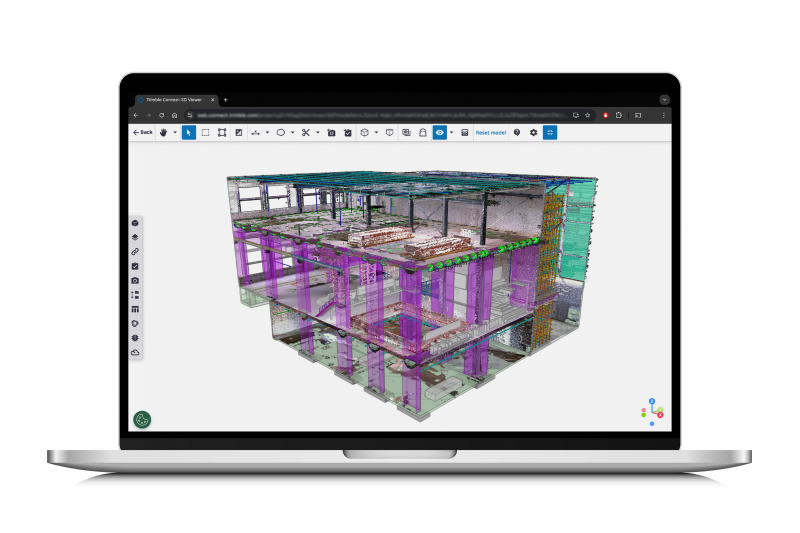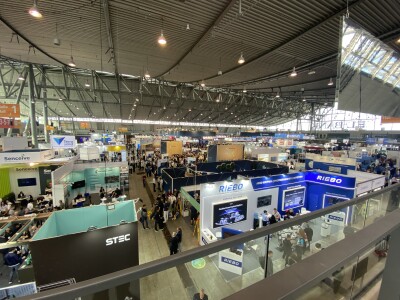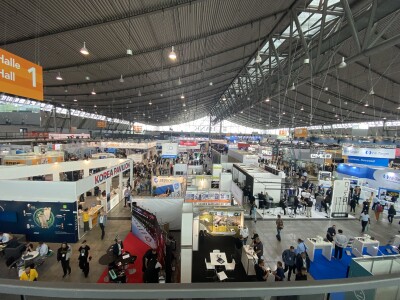Every year, many of the largest geospatial companies in the world come together at the annual Intergeo conference and exhibition, and Geo Week News was in attendance this year to take note of the latest trends and buzz around the industry. On Monday, we covered some of the broad takeaways from our week in Stuttgart, Germany, and we’ve also been highlighting conversations with some of these large companies exhibiting at the show. Among those companies was Trimble, who had a lot of products and features on display.
Geo Week News had some time to visit their booth over the course of the week, and took the opportunity to sit down with Gregor Willhauck, Trimble’s Cloud Solutions Market Manager, to talk about some of their reality capture solutions, including the recently announced Reality Capture Platform.
Willhauck told Geo Week News that this Reality Capture platform is available as an extension to the companies Trimble Connect platform, noting that the “one piece that was missing” from their solution was “proper support” for reality capture data. This is something their customers had been asking for, and this release starts to address some of those needs.
He described the cloud service as a “data service that is focused on reality capture data for mass data storage and serving that data in a cloud environment so it’s seamlessly integrated through Connect. That now allows users to bring their reality capture data into Connect and seamlessly work with that and build a collaboration workflow.”
Professionals had their chance to check out the platform at Intergeo, and Willhauck notes that there has been positive feedback, with some of the most common questions being around data security and integration with other platforms. On the former, he notes that since it’s being built upon the already used Connect platform, data security is not as much of a concern for people as it would be for a new product. Additionally, he does note that the platform will accept data from all reality capture systems, not just those from Trimble.
The volume-based subscription product – Willhauck compares the subscription model to that of iCloud subscriptions – is obviously still in its early stages, and he acknowledges that there will be more built on the platform as it goes on. Right now, the main use case is to view, manage, and share reality capture data, but he sees future iterations including the leveraging of artificial intelligence to analyze and filter the datasets.
In addition to this platform, we also briefly discussed Trimble’s X9 scanning system. While not brand new, the X9 is the company’s latest laser scanner, and now serves as their “core hardware platform.” What is interesting is that they are now offering the hardware as a subscription, lowering the initial buying cost and giving users the ability to upgrade their firmware to allow for longer range for their scans.
In addition to allowing for more customized scanning capabilities and the lower initial cost, Willhauck notes that this model creates “more responsibility on manufacturers,” since customers can leave the hardware at any time if capabilities aren’t meeting their needs.






